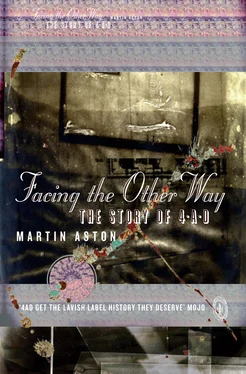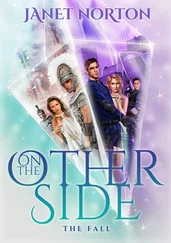While working in the shop, Ivo had only been a part-convert to the punk revolution. ‘I liked some of The Clash’s singles but their debut album was so badly recorded, it didn’t interest me at all. But I’d seen Blondie and Ramones live, and I quickly came to enjoy punk’s energy and melody. But I didn’t need punk to wipe away progressive rock. I’d been listening to what people saw as embarrassing and obscure country rock – no one was interested in Emmylou Harris or Gram Parsons back then. But I just loved voices, like Emmylou, Gram and Tim [Buckley].’
Of the new breed, Ivo preferred the darker, artier, and more progressive American bands such as Chrome, Pere Ubu and Television, who had very little in common with punk’s political snarl and fashion accoutrements. Steve Webbon, however, appeared to more fully embrace the sound of punk and its attendant lifestyle. ‘Those customers that were still into the minutiae of country rock were very dull,’ he recalls. ‘And that music had become more mainstream and bland. I spent the Seventies on speed: uppers, blues, black bombers. It must have been wearing for Ivo.’
Ivo had been forced to take charge on those days when Webbon disappeared to drug binge or during his periods of recovery. Ivo himself dipped into another torpid period of indecision. ‘Being behind the shop counter, with these children coming in every night, their hair changed and wearing safety pins, was exciting, but it got pretty boring too. So I left again.’
This time, Ivo flew to find the Holy Grail – to California. His brother Perry was taking Latin American studies at the University College of Los Angeles and could provide a place to stay. When Ivo’s visa ran out after just a matter of months, he again went back to the devil he knew; Beggars Banquet rehired him to train managers across all its shops. But after just one hour in the job, he quit again: ‘I felt like a caged animal.’
After claiming unemployment benefit for six months, the local job centre forced Ivo to apply for a job as a clerical worker at Ealing Town Hall. He once again turned to Beggars, and Nick Austin – clearly a patient man – re-employed him to do the same training job. In the summer of 1979, Ivo was even allowed an extended holiday, returning to California, where he and his friend Dave Bates first conceived the idea of a record label, and of opening a record shop with a café in Bournemouth on the south coast. Both operations were to be named Freebase (friends of Ivo’s had claimed they invented the freebasing technique of purifying cocaine). Ivo even went as far as registering the name: ‘Thankfully, it never happened. Imagine being behind a company called Freebase. In any case, the shop and café was pure fantasy.’
Ivo’s first thought for the Freebase label was to license albums by the San Francisco duo Chrome, purveyors of scuzzy psychedelic rock/electronic collage. Instead, the band’s creative force Damon Edge suggested Ivo should buy finished product from him instead, which he was unable to afford. 1
The next opportunity came after Alex Proctor, a friend from Ivo’s Oundle days who was working at the Earls Court shop, passed on a demo. Brian Brain was the alter ego of Martin Atkins, the former drummer of Sex Pistol John Lydon’s new band Public Image Limited (or PiL). Ivo had recommended his tape to Martin Mills, who didn’t show any interest. ‘But then I got talking to Peter Kent, who was managing Beggars’ Earls Court branch,’ Ivo recalls.
Ivo’s cohort in forming a record label now lives in the Chicago suburb of Rogers Park, two blocks from Lake Michigan’s urban beach. It’s his first ever interview. ‘I’ve always considered myself as a bit player on the side,’ says Peter Kent. ‘I know people who are just full of themselves, but I’m more private. And being a Buddhist, I like to live in the present rather than regurgitate the past.’ But he is willing to talk, after all. ‘It’s nice to leave something behind,’ he concedes.
Kent didn’t hang around for long in the music business, partly by choice but also due to illness (he has multiple sclerosis). Among other part-time endeavours, he works as a dog sitter, which would give him and Ivo plenty to chat about. But during the time that they worked together, Ivo says, he knew nothing about Kent’s private life.
Born in Battersea, south-west London, his family’s neighbour was the tour manager of the Sixties band Manfred Mann, which gave the teenage Kent convenient entry to London’s exploding beat music boom. Kent says he DJed around Europe while based in Amsterdam, ‘doing everything that you shouldn’t’. He adds that, ‘A friend was a doctor of medicine in Basle, who’d make mescaline and cocaine. Peter Kent isn’t my real name; Interpol and the drug squad were looking for me at one point. It’s a long story.’
Kent also says that British blues vocalist Long John Baldry was his first boyfriend before he dated Bowie protégé Mickey King who he first met, alongside Bowie, at the Earls Court gay club Yours or Mine. After returning from Amsterdam, Kent appeared to calm down when he started managing Town Records in Kings Road, Chelsea, next door to fetish clothing specialists Seditionaries, run by future fashion icon Vivienne Westwood and future Sex Pistols manager Malcolm McLaren. He also ran a market stall-cum-café in nearby Beaufort Market, next to future punk siren Poly Styrene of X-Ray Spex fame. By 1976, Kent had opened his own record shop, called Stuff, in nearby Fulham but it didn’t make a profit and so he took the manager’s post at Beggars Banquet’s Earls Court branch. The label’s office, and Ivo’s desk, was upstairs.
The origins of 4AD are contested. Kent says an avalanche of demos had been sent in the wake of Tubeway Army’s success: ‘Part of my job was to listen to them with the idea of forwarding the good ones to Beggars. I also said it was a great idea to start a little label on the side, and Martin said that’s what Ivo also wanted to do.’
Martin Mills recalls Ivo and Peter Kent approaching Nick Austin and himself with a plan, while Ivo sticks to the story he told Option magazine in 1986. ‘We’d regularly rush upstairs to convince Martin and Nick that they should get involved with something like Modern English, as opposed to what they were involved with. Eventually, Beggars got fed up with us pestering them and said, “Why don’t you start your own label?”’
Whatever the story, Mills and Austin donated a start-up fund of £2,000. Kent got to christen the label, choosing Axis after Jimi Hendrix’s Axis: Bold As Love album. ‘Ivo and I clicked as people,’ says Kent. ‘It was like I was Roxy Music and he was Captain Beefheart, but we appreciated where each other was coming from. He was mellower; I was more outgoing. But I wouldn’t say I ever knew him well.’
‘Ivo and Peter were a good double act,’ recalls Robbie Grey, lead singer for Modern English, one of 4AD’s crucial early signings. ‘They were similar in their background too, neither working class, so straight away you were dealing with art college types.’
Steve Webbon: ‘Peter was great. Very tall, dry sense of humour. And he had all these connections. He wasn’t as into music as Ivo, he was more into the scene. He’d go to gigs while Ivo would more listen to your tape.’
Ivo: ‘Peter was so important to 4AD from the start. Most of the early stuff was his discovery. While I was running around servicing the other shops, he was the go-getter. He knew people. I liked everything enough to say yes, but I didn’t know what I was doing.’
One part of the plan was for Axis to play a feeder role for the Beggars Banquet label, so that those artists with commercial ambition could make use of Beggars’ distribution deal with Warners. Another idea was to launch Axis with four seven-inch singles on the same day: ‘To make a statement, and to establish an imprint,’ says Ivo. ‘Other independent labels at that point, such as Factory, were imprints. It meant something.’
Читать дальше












